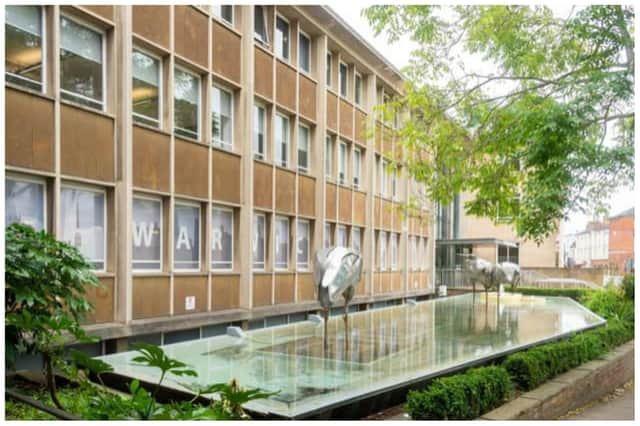Warwickshire county councillors advised to implement maximum tax hike


Officers at Warwickshire County Council say that council tax needs to be raised by the maximum amount allowed in order to balance the books.
Information that provides the basis for councillors to set the authority’s budget for the next financial year made for grim reading this week.
Advertisement
Hide AdAdvertisement
Hide AdInflation, workforce pressures, the biggest rise in the history of the National Living Wage coming on the horizon and increases in demand for care, education and home-to-school transport services are expected to add more than £80 million per year to the council’s base budget.
Financial officers believe they can achieve more than £16 million worth of savings next year through better procurement, managing demand, income generation and redesigning services but they still anticipate having to use £23.5 million from reserves in 2024-25 to balance the books before smoothing out financial gaps in future years.
Projections based on the medium term financial strategy (MTFS) – the overarching five-year financial plan – accounted for a three per cent increase in council tax, two per cent plus another one specifically for adult social care.
However, council professionals now say the maximum hike of 4.99 per cent is needed – 2.99 per cent plus two per cent for adult social care – to raise another £7.36 million for the authority.
Advertisement
Hide AdAdvertisement
Hide AdThe report read: “Corporate board’s approach in preparing this report has been to present members (councillors) with options for delivering a sustainable MTFS.
“The initial objective was to do this within the levels of future council tax agreed in February 2023. However, this has not proved to be possible and the corporate board is of the view that members need to take the maximum 4.99 per cent to ensure a robust and sustainable MTFS.
“This is because the forecast overspend in 2023-24 means that there are insufficient reserves available to resource any timing differences between when spending need arises and the delivery of savings.
“Without the additional council tax income, material levels of additional budget reductions would need to be approved and implemented from April 2024.”
Advertisement
Hide AdAdvertisement
Hide AdPoliticians at Shire Hall, whose parties will set out their own budget proposals before voting on them in February, did not try to sugarcoat the outlook.
Councillor Peter Butlin (Con, Admirals & Cawston), deputy leader of the council and portfolio holder for finance and property, said: “The paper we have before us is the state of play as we know it today.
“Some of this does not make for pleasant reading. We have a problem with demand outstripping our supply of money, which has been reflected in overspends over the past two quarters (of this financial year).
“As an authority, we are well run and that has been recognised in various quarters. We make the right decisions at the right time, and that will hopefully be reflected in the budgets that we all set in February.
Advertisement
Hide AdAdvertisement
Hide Ad“We have a duty to set a council tax and budget that is sustainable and balanced, we cannot print money like the government, we have to live within our means.
“In terms of setting a balanced budget, it does not give us a great deal of flexibility. The recommendation from the corporate board is a minimum tax increase of 4.92 per cent.
“I am not saying that this is what we as a political party will do, or what any of you (other parties) will do, but we have to be mindful of the need to set a budget.”
Liberal Democrat leader Councillor Jerry Roodhouse (Eastlands) said it was “one of the most challenging documents” he had read in his 30 years on the council.
Advertisement
Hide AdAdvertisement
Hide Ad“It is not very good news for this local authority or others,” he said.
“This is probably one of those years when we do have to work a bit closer together as political groups for the residents of Warwickshire.”